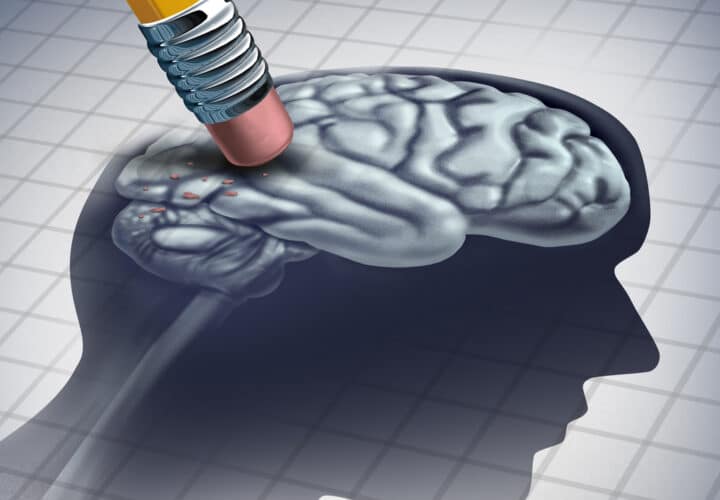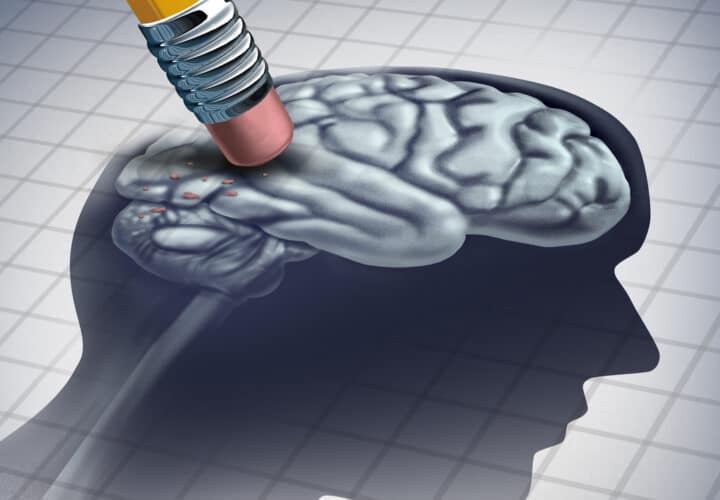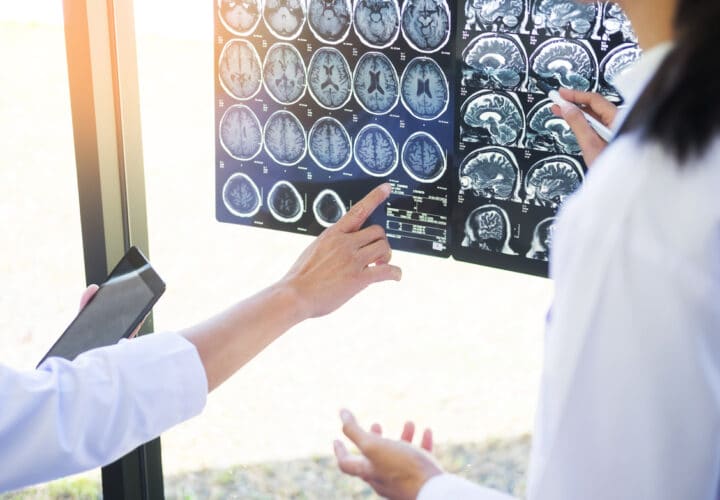We’ve all looked for our sunglasses only to discover they’re sitting on top of our head or turned off the stove before leaving the house for vacation, then run back inside to double check that it’s really off. While researchers say it’s normal to become forgetful from time-to-time, recent studies have pinpointed some early Alzheimer’s symptoms that could indicate you may be on a path towards diagnosis.
An Inability to Recognize Your Own Forgetfulness

A study found that consistently worrying about our memory—think rushing to WebMD every day to determine whether or not occasionally forgetting the route to a friend’s house means we’re destined to develop Alzheimer’s—is a sign that we may have a lower risk of receiving an Alzheimer’s diagnosis. The study found that forgetting your own forgetfulness is more concerning and could be an early sign of dementia.
According to the study, Alzheimer’s patients often have anosognosia, or a lack of awareness of early Alzheimer’s symptoms. After surveying nearly 500 participants and their loved ones, the scientists found that those who didn’t notice they were struggling with their memory were three times more likely to get dementia within the next few years. These participants also had more amyloid in their brains, the toxic protein that many scientists think leads to Alzheimer’s symptoms.
Similarly, Bill Burke, M.D., director of the Stead Family Memory Center at the Banner Alzheimer’s Institute said that when he worked in a memory disorders clinic, he was more concerned about patients who came into his clinic and told him that their spouse or children forced them to come than those who came in asking questions about their own memory problems.
“My rule of thumb was that if the person tells you they have memory problems, they almost certainly do not, and if they say they don’t have any memory problems and they’re in a memory clinic, then they have significant memory problems,” he said.
Burke said that your best baseline test for determining whether or not you have memory problems is your social network, or the people who know you best.
“You could do elaborate psychological testing and none of it is as effective as just asking someone who really knows the person whether they’re different than they were a year ago or there were things they could do a year ago that they can’t do now,” he said.
Having Trouble Finding the Right Words

Although we’ve all tried to think of a word that didn’t pop into our head until hours later, scientists have found that consistently being unable to find the right words could be an early Alzheimer’s symptom. Other early Alzheimer’s signs include frequently stopping in the middle of a sentence or starting a sentence, then forgetting what you planned to say, repeating the same story, or forgetting an object’s name (e.g. referring to your wallet as ‘the thing I put money in’).
Researchers from the University of Birmingham, the University of Kent and the University of California, Davis found that participants with mild cognitive impairment (MCI) who took a longer amount of time to come up with words were more likely to develop Alzheimer’s later on. Participants listened to descriptions like ‘a type of wood’ and researchers analyzed how long it took them to come up with a related description like ‘oak.’ Participants who were cognitively healthy or had MCI and answered more quickly did not develop Alzheimer’s within the next three years, while those with slower response times did.
Pam Montana, a former Intel executive who was diagnosed with Alzheimer’s, said her husband became increasingly concerned after they went on vacation together and she continued asking him the same question. She also began having difficulty remembering information she learned at team meetings.
“I found myself having a hard time grasping the information and keeping it in my head. That was new to me. I remember very clearly writing down word-for-word what was being said,” she noted.
More recently, researchers like Rhoda Au have been investigating how word choice or the way someone speaks could determine whether or not they’ll develop Alzheimer’s.
Difficulty Managing Your Finances

Trouble doing simple mathematical problems could be an early Alzheimer’s symptom, according to a recent study by Duke University. Scientists said that if you have always struggled with math or another skill throughout your life, you should not be concerned. However, previously excelling at managing household finances, then being unable to navigate your checkbook is a cause for concern, the study authors said.
The researchers looked at nearly 250 participants between 55 and 90 years old who were cognitively healthy, had MCI or Alzheimer’s. After giving them financial tests and brain scans that analyzed how much beta-amyloid was in their brains, the researchers found that participants with more beta-amyloid plaques were more likely to have issues with tasks involving finances or balancing a checkbook.
While Gerda Saunders, a former mathematician, was diagnosed with vascular dementia, she also said that her mathematical capabilities were the first to go. Now, her husband manages their finances.
“I suddenly could not do a simple subtraction or addition problem because in the middle of the operation, I would switch from subtraction to addition without realizing I was doing that. I would find out the answer was wrong and then discovered that’s what I was doing. Even though I know that’s what I’m doing, I can’t do it right,” she said.
The National Institute on Aging (NIH) lists signs of money problems loved ones can look for if they believe their loved one may have Alzheimer’s: not paying or opening bills, various new charges on a credit card bill, purchasing odd new merchandise or if money goes missing from their loved one’s bank account.
Learn more about the seven stages of Alzheimer’s disease and the symptoms you or a loved one may experience at each stage here.





I didn’t know that being unable to find the right words that you are thinking of could be a sign of Alzheimer’s. My wife is worried that she may develop Alzheimer’s because she has been unable to form her thoughts into a sentence, and she wants to make sure that her family doesn’t have a history of developing the disease. Maybe she should consider getting a genetic test to see if she has the APOE gene.